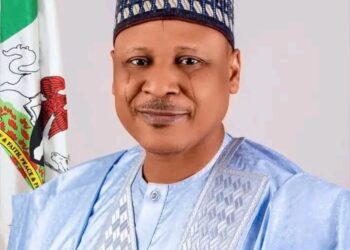The Lagos State Governorship Election Tribunal has unanimously affirmed that Babajide Sanwo-Olu was duly elected governor of Lagos in the march 18 election.
Justice Mikhail Abdullahi who read the lead judgment found the petition of Olajide Adediran of the Peoples Democratic Party (PDP) lacking in merit and dead on arrival, that deserves a befitting burial.
He added that the petitioner failed to discharge the burden of proof imposed on him by the Electoral Act.
The petitioner had contended that Mr Sanwo-Olu was not qualified to be elected, and therefore wrongfully nominated and sponsored by his party, the All Progressives Congress (APC).
He had relied on section 134(1)(a) of the Electoral Act of 2022 which deals with grounds of instituting an election petition.
Justice Abdullahi while reading the tribunal’s decision on the matter, held that this position didn’t form part of the grounds for disqualification for election into the office of governor, under sections 177 and 182 of the Nigerian Constitution (as amended).
The tribunal also declared that it has no powers to inquire into the primary election of the APC which produced M. Sanwo-Olu, saying it was a pre-election matter which doesn’t fall under its jurisdiction.
He said: “Only an aspirant or member of a political party can complain about the outcome of the party’s primary, not a busybody like the petitioner.”
The tribunal also addressed the issue of the governor allegedly forging his West African Examination Council (WAEC) certificate.
It held that the petitioner, Adediran should have invited the principal of the school, Ijebu-ife Community Grammar School, to prove his allegations.
The tribunal also struck out the names of the Labour Party and its candidate, Gbadebo Rhodes- Vivour among the list of respondents, saying a petition is contemplated to be filed between the winner and the loser of an election and not between two persons who lost.
The tribunal also expunged from its records all exhibits tendered in evidence by Mr. Rhodes-Vivour and the LP in Jandor’s petition, adding that they cannot subsequently go on to challenge any part of the judgment in Jandor’s petition or else will become a meddlesome interloper.




